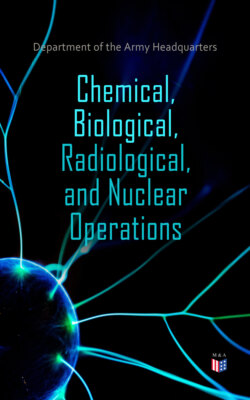Читать книгу Chemical, Biological, Radiological, and Nuclear Operations - Department of the Army Headquarters - Страница 38
На сайте Литреса книга снята с продажи.
1-29. Contact with national government officials.
ОглавлениеTable of Contents
o. Upon the arrival of the United States forces at the main point of entry the commander thereof should endeavor, through the medium of the United States diplomatic representative, to confer with the Chief Executive of the government, or his authorized representative and impart such information as may be required by the directive he has received. Such conference will invariably lead to acquaintance with the government’s leading officials with whom the military commander may be required to deal throughout the subsequent operation.
b. Meetings with these officials frequently require considerable, tact. These officials are the duly elected or appointed officials of the government, and the military commander in his association with them, represents the President of the United States. These meetings or conferences usually result in minimizing the number of officials to be dealt with, and the way is thereby speeded to the early formulation of plans of action by the military commander. When the mission is one of rendering assistance to the recognized government, the relationship between its officials and the military commander should be amicable. However, if animosity should be shown or cooperation be denied or withdrawn, the military commander cannot compel the foreign government officials to act according to his wishes. Ordinarily an appeal to the Chief Executive of the country concerned will effect the desired cooperation by subordinate officials. Should the military commander’s appeal be unproductive, the matter should be promptly referred to the naval superior afloat or other designated superior, who will in turn transmit the information to the Navy Department and/or the State Department as the case may be.
c. In most of the theaters of operations, it will be found that the Chief Executive maintains a close grip on all phases of the national government. The executive power is vested in this official and is administered through his cabinet and various other presidential appointees. Some of these appointed officials exercise considerable power within their respective jurisdictions, both over the people and the minor local officials. Some of them exercise judicial as well as executive functions, and are directly responsible to the President as head of the National Government.
d. It follows, therefore, that in the type of situation which involves the mission of assisting a foreign government, the military commander and his subordinates, in their associations with national governmental officials, as a rule will be dealing with individuals who are adherent to the political party in power. This situation has its advantages in that it tends to generate cooperation by government officials, provided of course, the Chief Executive, himself, reflects the spirit of cooperation. At the same time, it may have the disadvantage of creating a feeling of antagonism toward our forces by the opposite political party, unless the military commander instills in all members of his command the necessity for maintaining an absolute nonpartisan attitude in all their activities.
e. Political affiliation in most countries is a paramount element in the lives of all citizens of the country. Political ties are taken very seriously and serve to influence the attitude and action of the-individual in all his dealings.
f. When subordinate military commanders are assigned independent missions which bring them into contact with local and national governmental officials, they should make every effort to acquaint themselves with the political structure of the locality in which they are to be stationed. The principal guide for the conduct of their associations with the civil officials will be, of course, the regulation previously referred to which governs the relations between members of the naval service and the agents of foreign governments. The amenities of official intercourse should be observed and the conventions of society, when and where applicable, should be respected. When assuming command within a district or department, an officer should promptly pay his respects to the supreme political authority in the area, endeavor to obtain from him the desired information with regard to the economic situation in that locality and indicate by his conduct and attitude that he is desirous of cooperating to the extent of his authority with those responsible for the administration of the foreign government’s affairs.
g. In giving the fullest cooperation to the civil authorities, the military commander should insist on reciprocal action on their part toward the military forces. Interference with the performance of the functions of civil officials should be avoided, while noninterference on the part of those authorities with the administration of the military forces should be demanded. In brief, a feeling of mutual respect and cooperation between members of the military forces and civil officials on a basis of mutual independence of each other should be cultivated.
